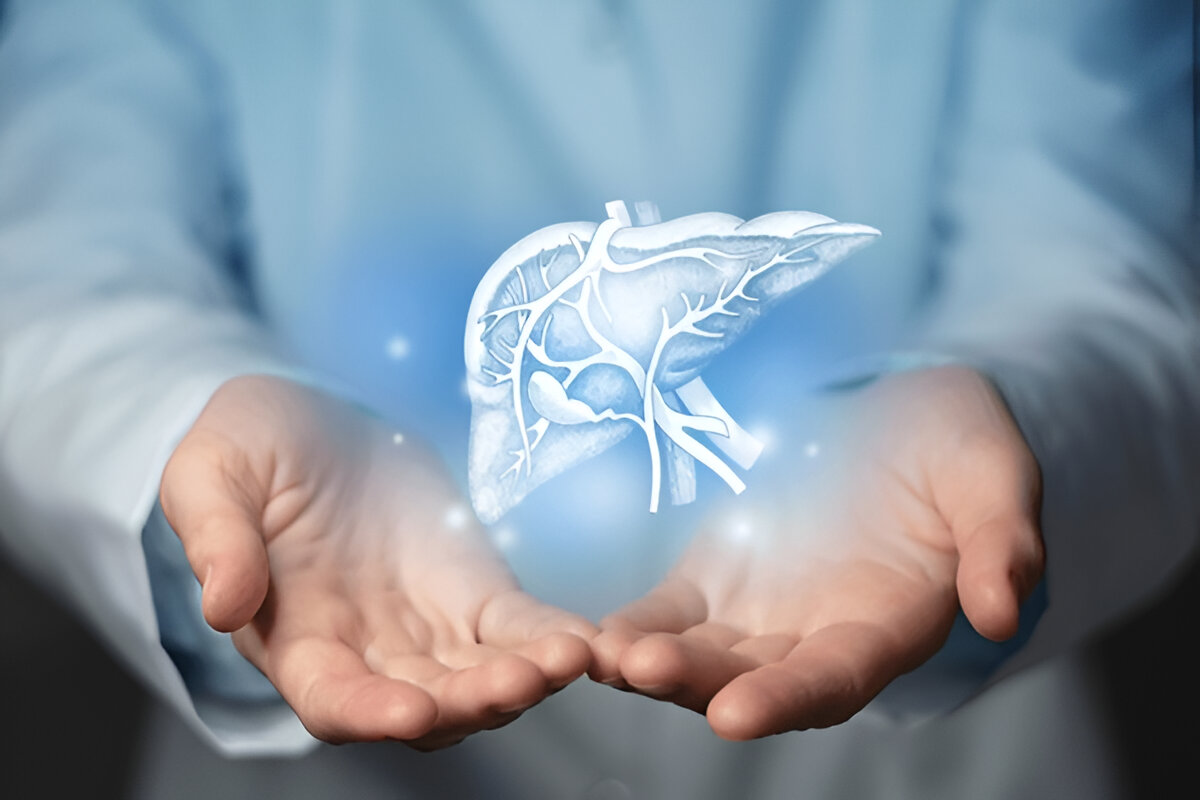Sugar Affecting Your Liver Health: Signs and Preventive Tips That You Must Know
Sugar is an unavoidable part of our lives – be it in your morning tea or coffee, snack items, or normal fruits, it is present everywhere! While in limited amounts, sugar is harmless, but excessive consumption can pose a serious threat to your well-being. And, the organ which is harmed the most is the liver.
The liver is responsible for breaking down and managing glucose levels in the body. However, when it gets overloaded, its function gets disrupted, leading to serious health complications in the long run.
This blog will discuss the major negative impacts of sugar in liver health, with special highlights on preventive tips for maintaining a good liver. Read on to learn more.
How the Liver Processes Sugar?
The liver is like a chemical factory, which metabolises nutrients and filter out toxins from the blood. When you have sugar, the digestive system first breaks it down into two major components:
- Glucose: It is the primary source of energy and is utilised by the cells to fuel up the body.
- Fructose: A special type of sugar, fructose can be found in fruits, honey, artificial sweeteners and several packaged foods. The liver exclusively processes this sugar.
While some quantity of glucose can be used up immediately to produce energy, (in small amounts) there is generally no problem. But, when you intake carbonated drinks, desserts, and processed items containing added sugars, the livers function is disrupted. Instead of converting glucose into energy, it converts them into fat.
The Negative Impact of High Sugar on Liver Function
Consuming too much sugar-laden foods triggers the liver to work overtime. This can lead to various harmful health effects, such as:
- Increased Fat Build-up in the Liver
Excess glucose is transformed into fat, which in turn gets accumulated in the liver cells. This, with time manifests into non-alcoholic fatty liver disease (or NAFLD). This is a condition in which excess liver fat causes body inflammation and harm.
- Insulin Resistance and Blood Sugar Imbalance
When the liver has to convert high sugar levels more than often, it may start resisting insulin. Insulin is the hormone responsible for controlling blood sugar levels and regulating them. This may contribute to the development of type 2 diabetes in future, impairing hepatic health in extreme ways.
- Inflammation and Tissue Scarring of the Liver
Too much sugar levels can trigger chronic liver inflammation, resulting in tissue scarring (also known as fibrosis). And, unfortunately in severe cases, liver cirrhosis may set in —a condition where there is an irreparable liver damage
Top Signs That Indicate Sugar Is Harming Your Liver
How do you identify if sugar is taking a heavy toll on your liver? Check out for the following signs below:
- Fatigue: A feeling of constant tiredness, even when you are sleeping enough.
- Abdominal discomfort: Characterised by persistent pain or a feeling of flatulence in the upper right side of the abdomen.
- Unexplained weight gain: Particularly around the belly region.
- Dark-coloured urine and pale stools: These are the typical signs of liver stress (indicating damaged liver).
- Yellowing of skin and eyes (Jaundice): This is a profound sign of severe liver damage, often irreversible.
- High Cravings for sweets: This is a cycle of sugar addiction, making the problem worse with time.
If you notice the above symptoms, it is high time that you must control your sugar intake and take necessary steps to protect your liver from further damage. Consult with reliable private doctors in London today for professional guidance.
Dietary and Lifestyle Changes to Protect Your Liver
- Reduce the Consumption of Added Sugar And Complex Carbs
- Men: Not more than 36 grams (approx. 9 teaspoons) a day
- Women: Not exceeding 25 grams (equal to 6 teaspoons) each day
The best thing you can do is checking food labels and staying away from processed foods as much as possible. Packaged foods are often high in added sugars – some common examples of these are fizzy drinks, cakes, pastries, and flavoured yoghurts.
- Eat Liver-Friendly Foods
Include more foods (particularly organic) that promote liver detoxification and function. Some of them are as follows:
- Leafy greens (such as spinach, kale, broccoli): These foods help eliminate metabolic toxins from the body.
- Berries (for example, blueberries, raspberries): These fruits are enriched in antioxidants and can reduce liver stress.
- Nuts (like walnuts, almonds, etc.): Nuts are the storehouse of healthy fats, helping to protect the liver.
- Fatty fish (examples – salmon, mackerel, sardines): Such fishes are rich in Omega-3 fatty acids, that helps reduce liver inflammation.
- Turmeric and ginger: These are natural spices that contain anti-inflammatory properties.
- Stay Hydrated
Drinking lots of water helps the liver flush out toxins effectively. Aim for at least 10 glasses each day.
- Do Regular Workouts
Physical activity is beneficial for burning excess sugar and fat before they get stored in the liver. You must try to exercise at least 30 minutes daily, 5 days a week.
- Acquire Adequate Rest
Inadequate sleep may result in insulin resistance and strain on the liver. Strive for 7-9 hours of restorative sleep every night.
- Handle Stress
Persistent stress heightens the desire for having sugar, leading to liver inflammation. Engage in yoga, mindfulness meditation, or deep breathing exercises to efficiently handle stress and encourage relaxation.
Myths and Facts Concerning Sugar and Liver Injury
Myth 1: The liver is harmed solely by alcohol.
Fact: Even without alcohol consumption, too much sugar can lead to liver disease.
Myth 2: Fruit is unhealthy due to its sugar content.
Fact: Whole fruits contain fibre and nutrients that reduce the pace of sugar absorption. The issue lies with added sugars in processed foods.
Myth 3: A “sugar detox” can quickly repair liver damage.
Fact: Reducing sugar intake is beneficial, yet recovering liver health requires patience and sustained healthy practices.
Conclusion
Your liver is a vital organ that handles everything you consume, including sugar. Excessive sugar intake causes your liver to struggle, resulting in fat accumulation, insulin resistance, and lasting harm. Nonetheless, by cutting back on added sugars, consuming nutrient-dense foods, maintaining an active lifestyle, and implementing minor changes, you can safeguard and potentially reverse liver damage. Various reliable private doctors in London are available – you can book a consultation at any for personalised tips on maintaining liver health.













